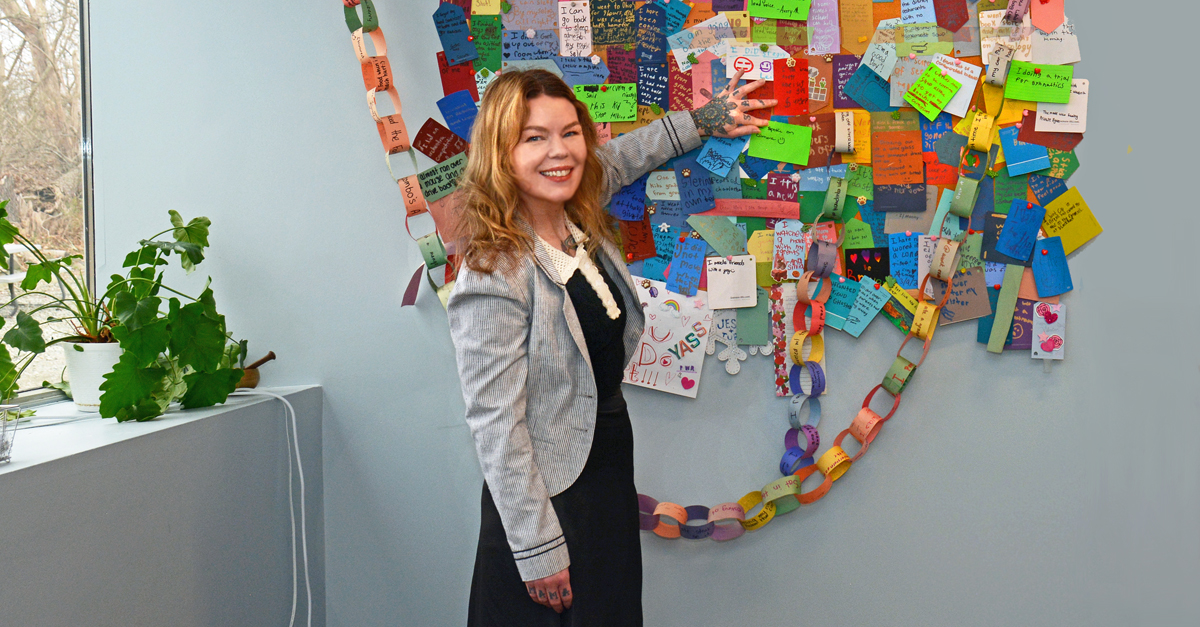Intern at Braver Medical, Riverside, RI
When we invited Adriana Milko to be filmed for a JWU Online student orientation video, she hesitated, saying, ‘I’m a little camera shy.’ Expecting that any student might feel nervous about speaking on camera, we couldn’t imagine how profoundly we had challenged Adriana — she has grappled with anxiety and OCD since she was a child.
At Braver Medical, where she elected to intern as part of her psychology program, Adriana has been assisting staff in delivering exposure and response therapy for kids coping with obsessive thoughts and anxiety. Inspired to lead by example for the kids at Braver — and to be a role model for her own children — Adriana chose to accept the challenge to speak on camera for the JWU Online video.
Adriana relates with great candor and compassion how her journey through the psychology program, her internship at Braver and being filmed for the JWU Online video have helped her triumph over her personal challenges and prepare for a professional career, advocating for kids in her community who are coping with mental health conditions.
Growing Up
I believe we are given certain experiences in life for a reason — they do set us on a path.
Growing up in a single-parent household with my mother and my brother, my childhood wasn’t perfect. My mother was a nurse, but as a one-person income household, we lived life in a lower socioeconomic stratum. Focused on survival, I believe having experienced childhood trauma has profoundly influenced my direction in life. The work I want to do, helping people — especially children — eliminate obsessive thoughts and reduce anxiety is close to my heart.
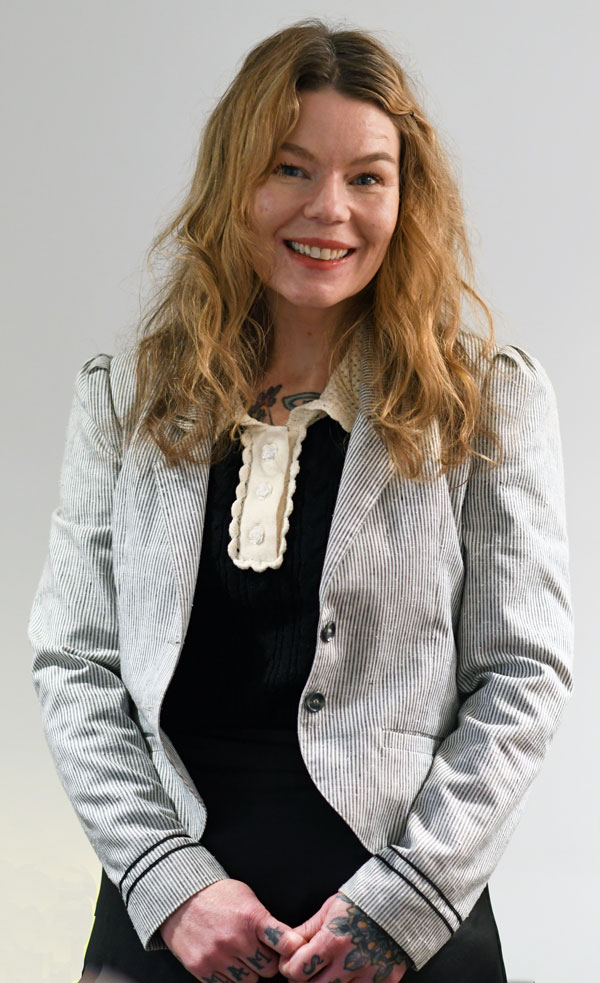
My husband and I met early in life, so we were young when we had our first child. While we were living in Colorado, one day, at 1:00am, I just up and enrolled in the local community college. I thought to myself, ‘I’m just going to do this and see what happens.’ I studied cosmetology in a trade school, got my associates degree and afterwards worked for years as a hairdresser.
We moved back to Rhode Island, where my husband had grown up, to be closer to his dad while he was ill. His dad has since passed. I continued working as a hairdresser until 2020, when COVID-19 hit. Then I quit my job and home-schooled both of my kids.
I’m a mom first, a student second.
When I felt ready to go back to school, I applied to an on-campus program at a local Rhode Island university. The advisor at the school was picking out my classes for me when he suddenly said, “You know what? I’m sensing that you’re not ready to go back to school in-person.” He had recognized that I was nervous about COVID-19. My younger son has asthma, which places him more at risk of complications from the virus. When you’re a mom, your kids come first.
And if you’re a working mom, coordinating the schedule between your job and on-campus classes can be difficult. This advisor offered, “Johnson & Wales has a really good psychology program. Why don’t you check out JWU before we press the ‘send’ button to enroll you in the classes here?” So, I contacted admissions at JWU Online, enrolled in the online psychology bachelor’s program and I just keep showing up!
The Online Bachelor of Science in Psychology Program
I’ve been having a really good experience in the program.
The psychology program is well-organized — it runs like a well-oiled machine. The school uses a great platform, Blackboard. Everything is pretty self-explanatory. I’ve had to figure out some of the technology, but that is good preparation for working in a technological world.
At JWU, there’s no confusion about registering for your classes.
I can remember when I went to school in Colorado, having to meet with my college counselor. After we met, I would get out the paper catalog and say, ‘Okay, this class, this class and that class.’ And then at the end of the day, I’d realize that a course I had chosen wasn’t eligible for transfer credit. It’s not a great start to a program when registering for classes is so confusing.
What makes the program at JWU Online work for me are the instructors and the people who are in the background, like my advisor, Jessica Rounds. I don’t have to worry about which classes I need to take to graduate. Jess will give me all of the options that will count toward my degree. She’ll ask, “Tell me which ones you want, and I’ll get you registered.” Then I’ll go about my day and Jessica will send me an email saying, “Okay, you’re all set for next semester.” That alone makes my experience really awesome.
And I appreciate that Jess regularly texts to ask me, “How are you doing? What do you need?” In this emerging digital world, I expect we will be communicating increasingly through text and emails and discussion boards, whether in school or working at a job. There’s a comfort level in having advisors we can email with our questions, or set up Zoom conferences if we’re more comfortable with that.
Creating Community In An Online Program
It’s the little things you do, like reaching out to your peers, which create community.
Being an online student can feel like you are all alone, but personally, I don’t feel lonely at JWU. Through texts, we can commiserate together or congratulate one another. I like feeling that while my classmates are not in the same physical space together, having that virtual connection helps me feel a sense of shared community.
I especially enjoy the classes in which we break out into smaller groups. In larger classes, it can feel intimidating to post to a discussion group — making small errors in punctuation or wording can be embarrassing. Small groups encourage many of us to ask more questions and offer opinions. As we get to know each other and are feeling less judged, we’re better able to enjoy feeling part of the JWU community.
If I’m having a hard time in a class — or I see through the discussion posts that someone else may be having a hard time — it is not unusual for me to reach out to my peers and say, ‘Okay, how are you feeling about this? Do we need help? Maybe we need to talk about this so we can bounce ideas off of one another.’ Although we’re not physically present with each other, we’re still creating our own dialogue and our own community together.
Work-Life Balance
When asked how I balance work, school and family, my response is, ‘Honestly, sometimes not well!’
I’m fortunate to have such a strong support system. My husband and my kids are there for me. Because I am so intensely achievement oriented, I have lots of calendars, and I just try to keep everything organized. It’s just built into me that when I have a desired outcome in mind, I will do whatever it takes to get to the goal.
It helps that I keep a picture of both of my kids on my desk where I study. When I start to wonder how I’m going get through this assignment or complete the course I am taking, I just look at my family photo — that reminds me that ‘yes, I am doing this.’
My older son and I are both in college at the same time. He’s doing his senior year with The Running Start Program at CCRI. I want to show him what we need to do to value our access to education in this country — and appreciate that everybody here can get one. Even if a program is difficult, even if balancing school with work and life is hard, we are fortunate to have educational opportunities.
When I feel like I can’t possibly dig any deeper and just can’t do this anymore — maybe I really want to go to bed or relax or listen to a podcast — I try to remember that beyond wanting to be a good role model for my kids, I also want to make myself proud. I want to show myself that I can accomplish whatever is challenging me. That’s when a little bit of self-talk helps. I’ll tell myself, ‘You can do this.’ And then I remind myself, ‘You ARE doing it.’ We all are capable of doing hard things.
Motivation and Managing Time
It’s a myth that learning online requires less work than attending classes on campus.
Originally from Kansas City, while I was in my early twenties, I attended classes on campus at Kansas City University. I remember what it was like going to class, reading the material and writing the papers. Students were not as “plugged in” to the internet back then — you just showed up in class and then got your assignments done.
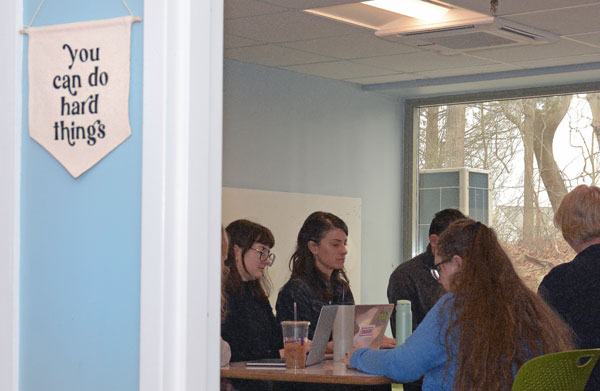
JWU’s psychology courses online are extremely text heavy. I’m doing a lot of reading — about 200 pages a week for one of my psychology courses — while at the same time, I’m completing weekly assignments. That’s the only way that the instructors have to measure that you’re doing the work and that you’re consolidating what you are learning. I have so much respect for my instructors, so I understand the reason why the courses demand a lot of text to read.
JWU Online staff and teachers do a wonderful job instructing online students and the advisors are great about providing support — but they can’t do the work for us. Whether or not we meet the deadlines in an online program is all on us.
You need to have good time management skills and be self-motivated to stay on track.
Being highly driven pushes me to be hyper-organized and manage time to meet my goals. I can see how online studies might be difficult for someone who doesn’t have good executive function to set goals, plan, organize and then apply strategies to achieve those goals. If someone hasn’t had much experience in managing their time, or is not highly internally motivated, they could feel overwhelmed by the demands of an online program.
Ultimately, the difference between being in the classroom or learning online from home is that you to have to make the choice about whether or not you will get the job done. A lot depends on being self-directed in taking the initiative to ask for help. My best suggestion is that if you are having difficulty keeping up with the reading and assignments, reach out to ask for help before you fall behind.
Because it is important to me that I always do my best, my biggest challenge has been how incredibly difficult it is for me to feel like I am constantly being evaluated. I want to get everything right, and to earn an ‘A’ in every course I take. I’m not saying that I don’t take constructive feedback and critiques well, but being graded on everything I’m doing has been hard for me.
The flip side of being so driven is that I can be excessively hard on myself.
I hold myself to extremely high standards. Believing that I need to put my all into my schoolwork so that my instructors will recognize that I’m doing a good job — and that my grades reflect those efforts — can exhaust me.
Living with ADHD or anxiety or being prone to panic attacks are all very real experiences for many people. It’s difficult enough for someone who is dealing with anxiety to make a presentation — let alone have to get through all of their courses to earn their degree.
I’m sure I am not alone — many people come to school with a high level of anxiety.
Even so, everyone has the ability to get through the program, provided they just keep showing up. If you are finding it too hard to show up — maybe you feel anxious, or have OCD or ADHD, or are struggling with learning challenges — ask for help. There is no stigma or judgment here. JWU is a safe place. Your advisor will direct you to resources for help.
Experiential Internship
Not all of my classmates chose to do an internship; it’s an option, not a requirement.
Personally, I needed to rip the band-aid off, get practical, hands-on experience and apply what I have been learning in the program.
As far back as I can remember, I’ve had a strong desire to advocate for kids and adolescents who either can’t or don’t have the resources and opportunity to advocate for themselves. Most of the papers I’ve written during the psychology program have focused on adverse outcomes in adulthood resulting from childhood trauma. Having anxiety and OCD myself is a strong motivator to work with children and families who are living with these conditions.
When I began looking for internship opportunities, I was fortunate to have help from really inspirational individuals in my life, like my good friend who works at Braver Medical. When she mentioned the possibility of doing an internship there, I jumped at the opportunity!
Even without a personal history of anxiety or OCD, navigating new experiences like interviewing for and starting an internship can feel scary. I questioned whether I knew enough and if I had what it takes to succeed in a professional internship.
Braver Medical is an outpatient program specializing in exposure and response therapy, which has been shown to help children and young adults with anxiety and OCD. At Braver, a licensed psychologist helps each child and their family choose the right Braver Challenges. A Braver Coach, who is supervised by a psychologist, works closely with the family to complete the Challenges.
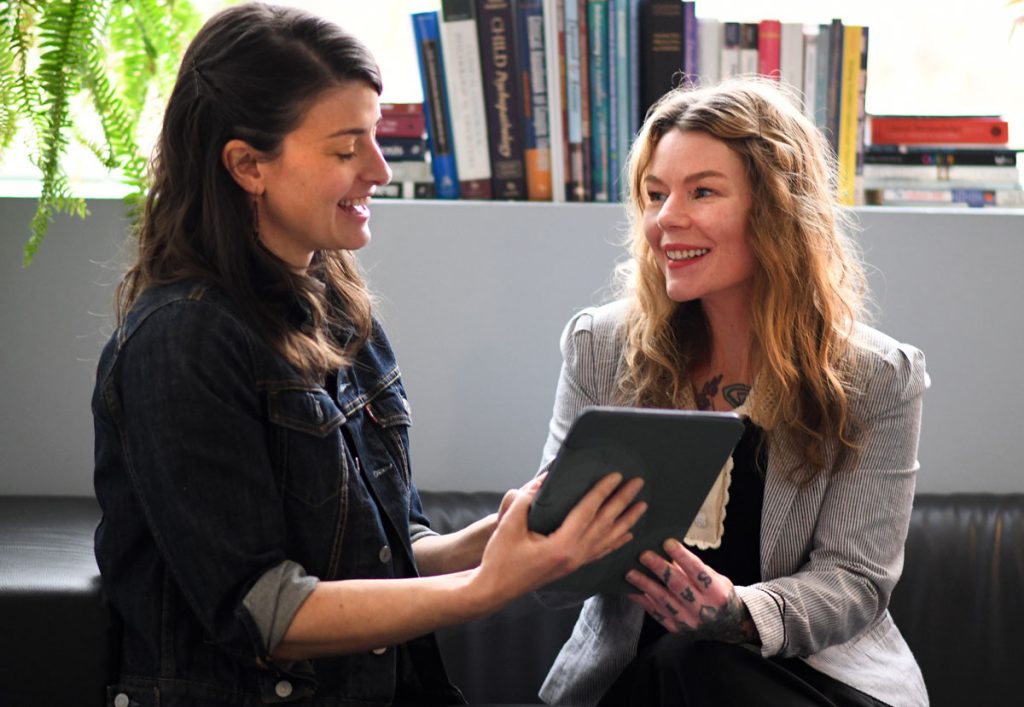
By working with Braver’s team, kids and their family become better able to tolerate uncomfortable situations, and face what they feared, so that they can participate in activities and events and find more enjoyment in life.
During my interview at Braver, I was honest about my own experience with anxiety and my clinical diagnosis of OCD. Even though I doubted myself and felt nervous, I believe the most important qualities that influenced Braver to accept me as an intern is my natural curiosity surrounding the mental health profession and my genuine desire to learn.
I jumped right in and was encouraged to participate in family sessions, support group leaders, observe and engage in individual sessions with kids and their parents. I have been able to be a part — even if it’s a small part — of helping these kiddos feel safe and understand that their feelings are valid. Just being able to witness these children being brave has been wonderful and rewarding.
My Braver Brag
Agreeing to participate in the JWU Online video became my own “Braver Challenge.”
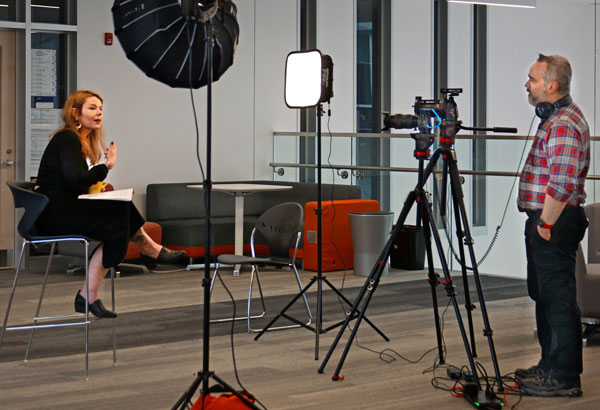
When first asked by the school to speak on camera for the student orientation video, I was overwhelmed. I had never done anything like that before. I told them that I was camera shy, but didn’t mention my history of anxiety or OCD, which would make being on camera exceptionally challenging for me.
On a cold, winter day, after navigating city driving and finally finding the Pine Street parking garage, I arrived on campus for the shoot. I was incredibly nervous —panicked that I would go blank when asked a question.
Going into that interview, I had the kids at Braver on my mind. I thought about how wonderful it is to work with them, and about the bravery of “brags.” When the kids complete a challenge — even one for just being ‘okay’ — we recognize their effort and reflect back, ‘That was so hard for you!’ We encourage kids to post their brags on the board in the center and to take pride in the challenge they have accomplished.
I drew my inspiration from the kids at Braver, and my own kids, too.
I wanted to lead by example, so I decided that if I could get through the video session, when I got back to Braver, I’d be able to tell the kids that I have a “Braver Brag.” I would share my brag with them and tell them that I did something really, really challenging for me. Maybe sharing my brag would, in turn, inspire one of them to raise their hand in class, or take a drink out of a cup that is unfamiliar to them.
On camera, I was shaking so hard it was sometimes difficult to speak. Several times, I had to stop and start over again to answer a question. The camera crew was patient and kind. But I got through it. And in the end, it was successful; on the video, you can’t tell that I was scared.
I’ve learned at Braver that what we fear is not as bad as we imagine it will be. Each time I do something I’m afraid to do, it’s less scary – and I feel a little bit braver. That understanding is starting to work for me in all areas of my life.
I know now that it’s okay to be scared.
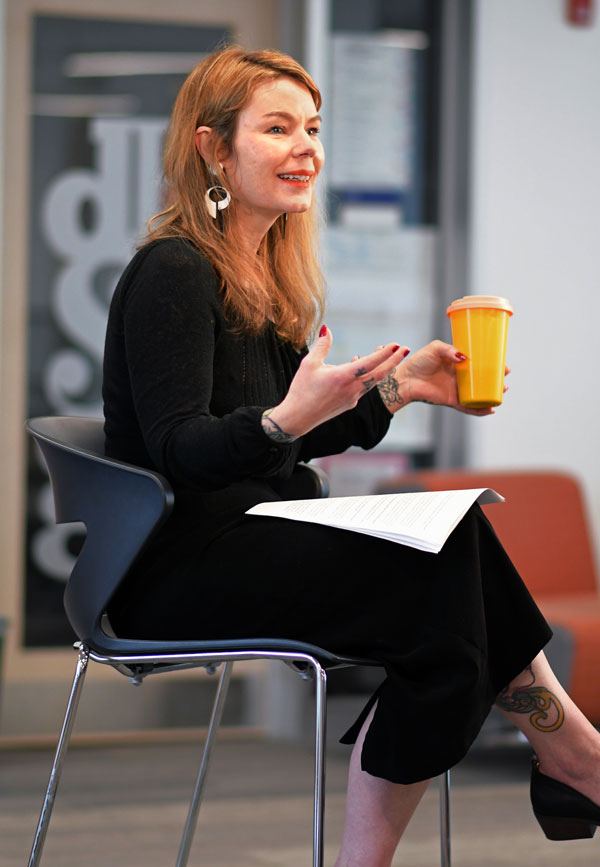
On the day that I faced the camera, everyone knew I was scared, and I’m OK with that. Telling someone, ‘Hey, I don’t feel particularly normal right now. I feel like I’m out of my body,’ can feel embarrassing. But it is OK to feel embarrassed. We can reach out and let someone that we’re having a hard time. I believe we all need to give ourselves more credit — even accolades. We get to be proud of ourselves, whether what we did was something big or small.
I also wanted to show my own children that we can do anything we choose to do. We can do hard things. We can get through it. And we don’t have to do it alone — we can ask for help. I want my children — all children — to know that if you want something badly, go for it. Even if it doesn’t go the way you wanted, that’s OK. Because, after you do it, it’s over. At the end of the day, whatever happened, you did it — it’s over and done.
Career And Future Educational Goals In The Mental Health Field
Being there physically, getting hands-on experience and seeing first-hand the work they do, has been a powerful motivator to keep me going in school. Applying in the real world the academic knowledge learned during the psychology program has given me some really needed self-confidence.
I’m thrilled that my internship at Braver has been such an incredibly rich and positive experience.
I’m proud to have been part of the Braver team. I feel an overwhelming amount of gratitude to have been invited to participate and learn from such an amazing and powerful group of people!
Working with children for the first time in this capacity, I realize that not only do I love it, but I believe that I could be good at it! I have learned invaluable lessons and gained so many skills at Braver, including understanding exposure response prevention (ERP) therapy and acceptance and commitment (ACT) therapy, and how these two therapeutic approaches greatly benefit sufferers of OCD and anxiety.
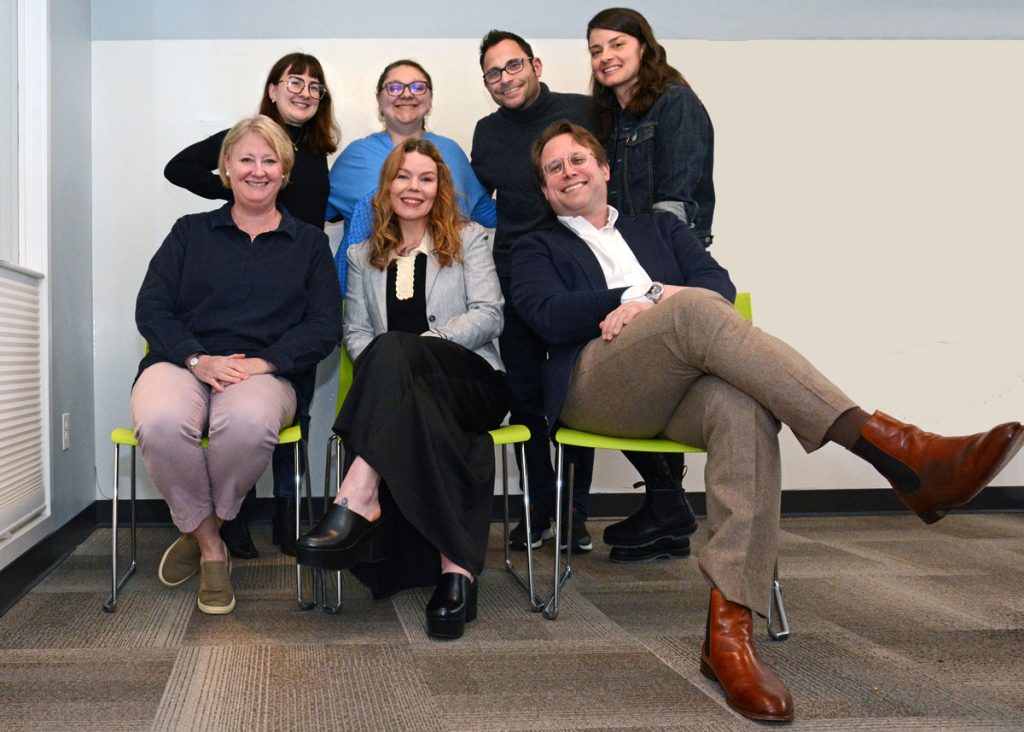
Interning at Braver has been helped me explore what I want to do with my career.
Once I have earned my bachelor’s degree, I will be qualified to be a group leader and run the groups at Braver Medical. A group leader advises kids and helps them learn the tools and gain self-confidence to better cope with mental health challenges. That’s an exciting path that I could take.
My bachelor’s degree from JWU would enable me to work at a place like Braver, while working towards an advanced degree. I hope to continue my education to complete a master’s degree, which would open up more options for me. Given the opportunity, I would be beyond happy to work with the Braver team in the future.
With Gratitude
Similar to most of my peers in the online classes, I’m a not a “traditional student.” Maintaining a full family life, working part-time and being a student hasn’t been easy, but it has been a really great experience. I am grateful to my family for being so supportive. We’re getting through this together — we’re almost done.
I also appreciate the endless support and guidance from my JWU advising team. They encouraged me to go into my internship at Braver with an open and eager attitude — and the determination to merge academic knowledge with the practical experience I would gain.
The psychology program, although challenging, has been extremely thorough and informative. The support you receive at JWU Online from your professors helps build your confidence and makes you a better student.
I still don’t have a crystal-clear path ahead of me. I just know that I’ve always wanted to serve my community. Fortunately, with a little less stigma surrounding conditions like OCD and anxiety, this is such a good time for me to get into the mental health field. I can say to someone, ‘I understand what you are going through. I can relate to you — I’ve been there.’
I am grateful for the challenges I have been given in life, which have set me on the path of helping others. I recognize we have a choice. We can allow fear to keep us from fully living life or we can become braver by asking for and accepting help. I’ve learned that anxiety, when well-managed, can power my drive to succeed. I think differently about my anxiety now — I even call it my superpower.
